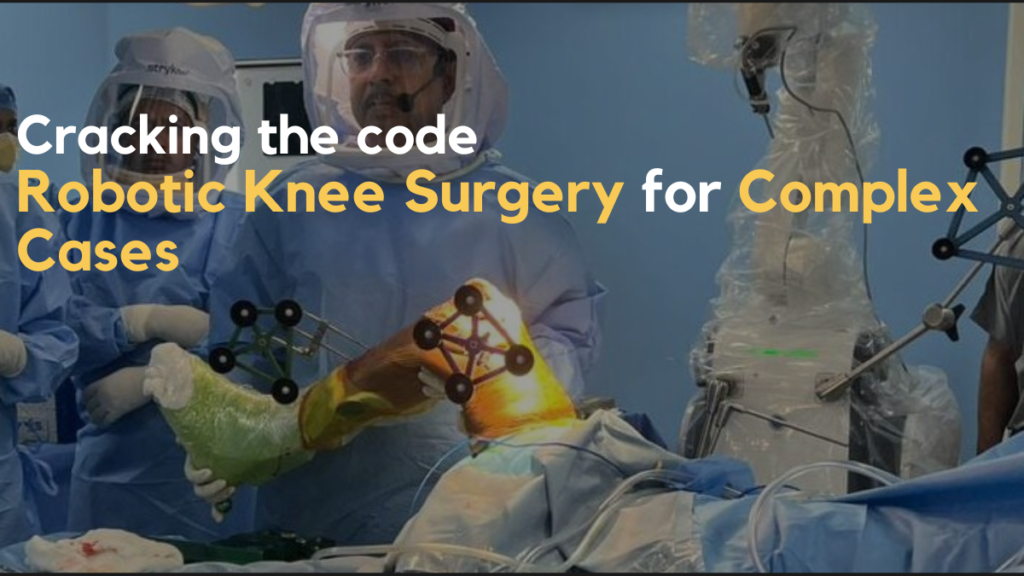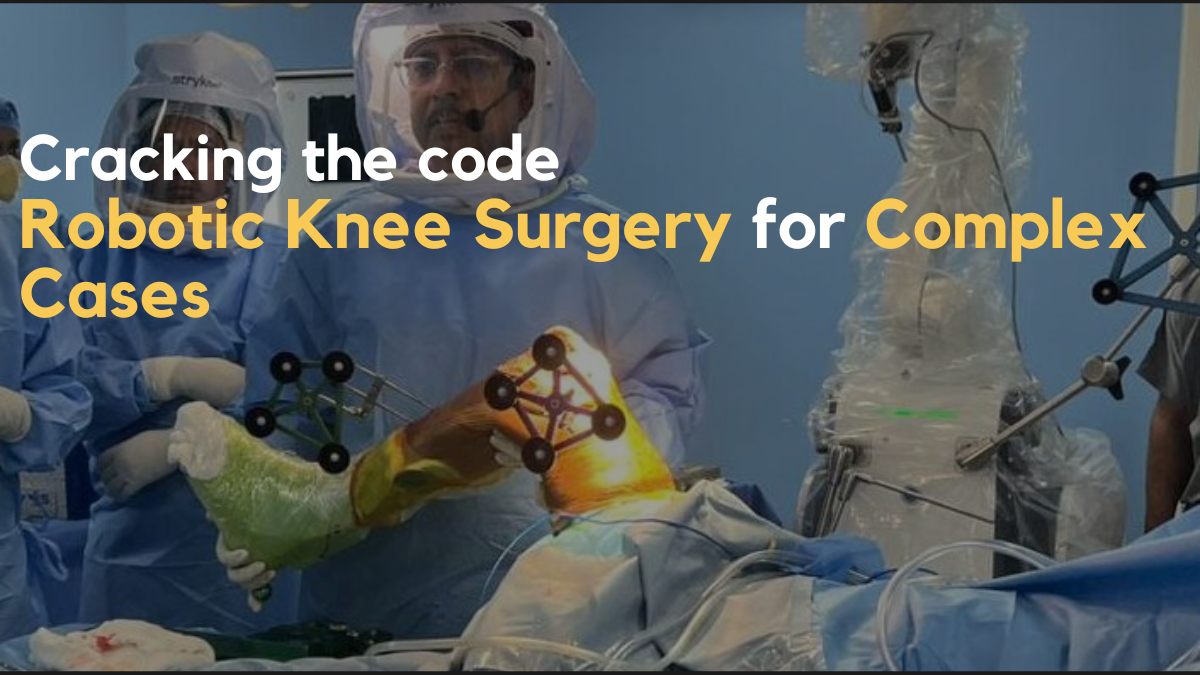Introduction
Robotic Knee Surgery for Complex Cases, Navigating complex knee conditions, such as severe arthritis or deformities, can pose significant challenges for both patients and orthopedic surgeons. These cases often require precise planning and execution to achieve successful outcomes. In recent years, robotic knee replacement surgery has emerged as a groundbreaking solution, offering advanced technology to address the intricacies of complex knee problems. In this blog post, we’ll delve into how robotic knee replacement technology tackles the complexities of severe arthritis, deformities, and other challenging knee conditions, ultimately providing patients with personalized and effective treatment options.

Understanding Robotic Knee Surgery for Complex Cases | Complex Knee Conditions
Complex knee conditions encompass a broad spectrum of issues that go beyond the typical wear and tear associated with aging. Some common examples include:
- Severe Arthritis: Advanced stages of osteoarthritis or rheumatoid arthritis, characterized by significant cartilage loss, joint inflammation, and pain.
- Deformities: Structural abnormalities in the knee joint, such as malalignment, bowed legs (varus deformity), or knock knees (valgus deformity), which can impact function and stability.
- Ligament Instability: Tears or laxity in the ligaments surrounding the knee, such as the ACL or MCL, leading to instability and increased risk of injury.
- Previous Surgeries: Patients with a history of failed knee surgeries or complications may present with challenging anatomical issues that require specialized approaches.
These complex cases demand tailored treatment strategies to address the underlying pathology and restore optimal knee function.
Robotic Knee Replacement Surgery: Precision and Customization for Complex Cases
Robotic-assisted knee replacement surgery offers a revolutionary approach to managing complex knee conditions, providing orthopedic surgeons with the tools and technology needed to navigate intricate anatomical challenges Robotic Knee Surgery for Complex Cases:
- Precise Preoperative Planning: Robotic systems utilize advanced imaging techniques to create a detailed 3D model of the patient’s knee anatomy. Surgeons can then meticulously plan the procedure, assessing the extent of deformity, bone quality, and optimal implant positioning.
- Enhanced Intraoperative Navigation: During surgery, robotic technology provides real-time feedback and guidance to the surgeon, ensuring precise execution of the preoperative plan. This level of accuracy is particularly beneficial for addressing complex deformities and achieving optimal alignment and stability.
- Customized Implant Placement: Robotic-assisted techniques allow for customized implant placement based on the patient’s unique anatomy and pathology. By optimizing alignment and fit, surgeons can improve implant longevity and overall knee function.
- Minimally Invasive Approach: Robotic knee replacement surgery typically involves smaller incisions compared to traditional techniques, resulting in faster recovery times for patients with complex knee conditions.
- Improved Outcomes: Studies have shown that robotic-assisted knee replacement surgery leads to improved clinical outcomes and patient satisfaction in complex cases. The combination of precision, customization, and minimally invasive techniques contributes to the successful treatment of severe arthritis, deformities, and other challenging conditions.
Conclusion
Robotic Knee Surgery for Complex Cases, Complex knee conditions present significant challenges for patients and orthopedic surgeons alike, requiring specialized expertise and innovative approaches to achieve successful outcomes. Robotic knee replacement surgery represents a cutting-edge solution, offering precision, customization, and enhanced outcomes for patients with severe arthritis, deformities, and other complex knee problems. If you’re struggling with a challenging knee condition, consult with a qualified orthopedic surgeon to explore whether robotic-assisted surgery may be a suitable option for you. With advanced technology and personalized care, you can crack the code of complex knee problems and regain mobility and quality of life.


